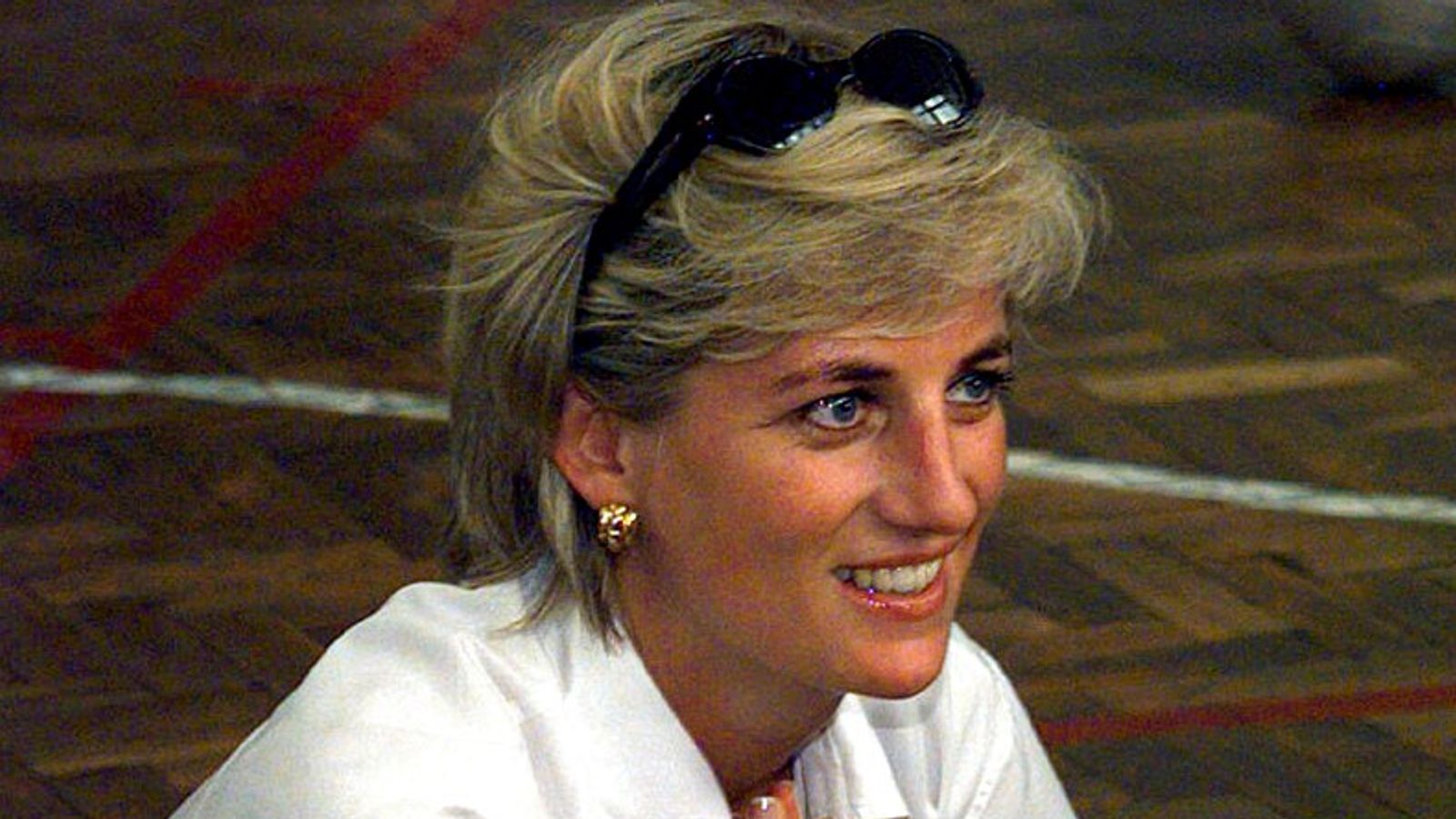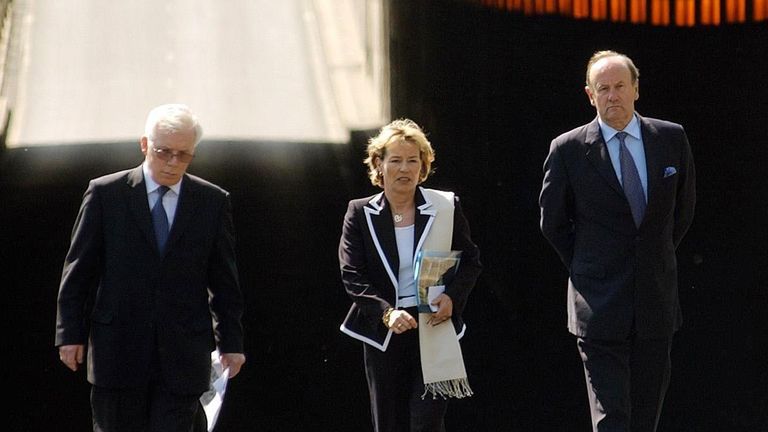French investigators have spoken of their frustrations about failing to track down white Fiat Uno that reportedly clipped Princess Diana’s car on the night she died in Paris.
Diana was killed in a car crash in the early hours of 31 August 1997, a year after her divorce from Prince Charles.
Her death sparked a wave of public grief and still attracts conspiracy theories 25 years later.
Analysis: Princess Diana’s death may yet have consequences for the royals
In a new Channel 4 documentary series, Investigating Diana: Death In Paris, detectives from the 1997 French Brigade Criminelle discuss the Fiat Uno that was reportedly there at the time but was never traced.
They say the driver of the car could potentially have helped explain the movements of the black Mercedes that Diana, 36, and her partner Dodi Fayed were travelling in.
Martine Monteil, head of the Brigade Criminelle, told the programme: “The whole of the world has struggled to accept that the Princess of Wales died in a mundane accident.”
She added: “I have frustration about the Fiat Uno because I like a well-finished business.
“For sure, it’s out there. Unfortunately we don’t have it.
“But you know the driver of the Fiat Uno, he’s not the real culprit.
“He’s driving along quietly and then a Mercedes arrives at high speed and bumps into him. The responsibility remains with the Mercedes.”
The Mercedes Diana was a passenger in on the night of the crash was being pursued by the paparazzi after she left the Ritz Hotel in Paris.
The car crashed in the Pont de l’Alma tunnel and Mr Fayed, 41 – son of Harrods owner Mohamed Al Fayed – and driver Henri Paul were also killed.
Bodyguard Trevor Rees-Jones survived.
A couple at the scene said they saw a white Fiat Uno coming out of the tunnel and the driver was focused on his mirrors, the investigators said.
Traces of white paint were found on the Mercedes and its tail light was broken.
Fabrice Cuvillier, of the Brigade Criminelle, said the Fiat Uno exists, telling the programme: “It’s not a hallucination. It’s not something we threw out to create a diversion. It exists.”
Eric Gigou, also of the Brigade Criminelle, said authorities “did everything we could to understand what happened” and more than 1,000 people were interviewed in the investigation by the French authorities.
“In my mind the only door that remains open is the testimony of the driver of the Fiat Uno,” he said.
Ten years after the crash, a verdict of “unlawful killing” was returned at a UK inquest, citing Mr Paul being drunk and driving too fast and the car being chased by photographers.

